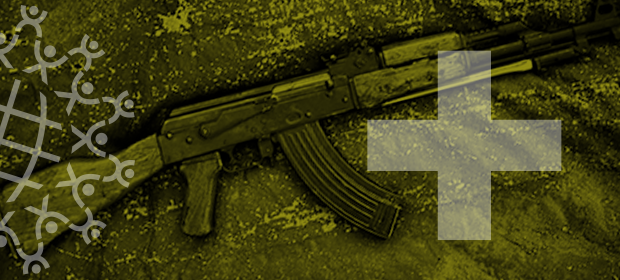Where We Work
See our interactive map


A new report and interactive map published today by the Safeguarding Health in Conflict Coalition (SHCC), based on data collated by coalition member Insecurity Insight, highlights a global onslaught of violence against health workers, facilities, and transport from 2016 through 2020, including:
The figures—drawn from credible media reports as well as reporting by intergovernmental organizations, states, NGOs, and aid agencies—is likely a significant undercount, due to underreporting in many places around the world.
On May 3, 2016, the UN Security Council unanimously adopted Resolution 2286, which obliged Member States to take specific actions to end—or at least ameliorate—violence against health care. The SHCC report published today provides a review of violence against health care from 2016-2020 and of the inaction of governments to effectively respond to the crisis.
Violence against health care spiked as well during the COVID-19 pandemic, as patients and community members attacked health workers and mounted violent responses to public health measures. While most violence against health care from 2016 to 2019 occurred in conflict zones, the pandemic led to waves of attacks against health care in countries not at war, such as India and Mexico.
The report highlights the many forms of violence against health care, from airstrikes against clinics to the looting of hospitals. Health workers around the globe have been kidnapped, arrested, injured, and killed while providing medical care. Violent interference prevented patients from accessing care and emergency responders, vaccinators, and other health workers from providing life-saving services.
During the five-year period, more health workers were killed in Syria (243) than any other country, according to the available data. Health workers were kidnapped most frequently in Nigeria (68 health workers kidnapped). More health facilities were destroyed or damaged in Syria (442 incidents) than anywhere else, while the Democratic Republic of Congo experienced the highest number of armed entries into health facilities (43 incidents). Some 690 emergency medical responders were injured in the occupied Palestinian territories and 73 emergency medical responders were arrested in Sudan, both the highest rates of any countries from 2016-2020. Health vehicles were hijacked most frequently in Mali (24 incidents). High income countries were not immune from attacks on health care, particularly amid the COVID-19 pandemic which saw violence against health care in the United States, United Kingdom, and Australia in 2020.
UNSC Resolution 2286 included 14 directives to end or reduce violence against health care, such as:
“The pandemic is yet another reminder that the world’s health workers are essential and that when we fail them, we fail all of us,” said Prof. Leonard Rubenstein, founder and chair of the Safeguarding Health in Conflict Coalition (SHCC) and professor at the Johns Hopkins Bloomberg School of Public Health and Center for Public Health and Human Rights. “After five years of inaction, the UN Secretary-General must step up to report each year on actions states have taken to implement the resolution. To aid this process, the Secretary-General should appoint a special representative to monitor and report state performance, conduct country visits, and make recommendations to ensure greater compliance with Resolution 2286.”
The report published today highlights data included in five annual reports (2016-2020) from the Safeguarding Health in Conflict Coalition. The 2021 annual report will be published on May 24 at the Graduate Institute Geneva during the World Health Assembly. During this event, the SHCC, Swiss Federation, Minister of Health from the Central African Republic, Pierre Some, and a health worker representing Doctors without Borders, will speak on the reported violence and ways we can address the problems.
The Safeguarding Health in Conflict Coalition is a group of international nongovernmental organizations working to protect health workers, services, and infrastructure.
The Steering Committee of the 40+ member SHCC includes: Center for Public Health and Human Rights at the Johns Hopkins Bloomberg School of Public Health, IntraHealth International, Human Rights Watch, Insecurity Insight, International Council of Nurses, International Federation of Medical Students’ Associations, Johns Hopkins Center for Humanitarian Health, Management Sciences for Health, Medact, Office of Global Health, Drexel Dornsife School of Public Health, Physicians for Human Rights, Syrian American Medical Society, Watchlist on Children and Armed Conflict, and Human Rights Center, University of California, Berkeley School of Law.
Read the full version of this press release here.



